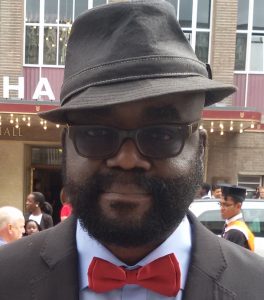
Mohammed Inuwa Wushishi was the first Nigerian army general to make a lasting positive impression on me. Taciturn, sensitive and perhaps too considerate in interpersonal relations, Wushishi struck me as a man thrust into prominence by fate but who was more comfortable operating under the radar, away from klieg lights.
I was part of a three-man team working on a biography of the retired army chief. The team was led by the world-famous writer, Chief Cyprian Ekwensi, with another journalist, Obinwa Nnaji, completing the number.
The first task we set ourselves was to research the background of Wushishi. In the 90’s, there were no cellphones and no internet. You had to physically go to the library to do any meaningful research. But it was all fun because the subject of the research was enigmatic.
Inuwa was born on New Year’s Day in 1940 in Wushishi town, Niger State. He attended Wushishi Junior Primary School from 1947 to 1950; Paiko Junior Primary School from 1951 to 1952; Minna Senior Primary School from 1953 to 1954, before enrolling at the Bida Provincial Secondary School where he studied between 1955 and 1960. One day, as part of the career counselling session organised by his secondary school, a certain Lt. Jack Yakubu Gowon, decked in immaculate army uniform, was brought to the school to address and inspire the senior students. Gowon shared his military experience with them and encouraged them to consider a career in the army after their secondary education.
Inuwa Wushishi was the school’s senior prefect in his final year. Among his juniors in the same school were the following who also opted for a military career and rose to the top as generals: Gado Nasko, Sani Sami (now Emir of Zuru), Ibrahim Babangida, Garba Duba, Sani Bello, Abdulsalam Abubakar, Mohammed Magoro, Mamman Vatsa. They were all to play prominent roles in steering the ship of the Nigerian state.
Wushishi himself had set the pace for his juniors. After his training at Mons Officer Cadet School, Aldershot, UK, from 1961 to 1962, he proceeded to the Nigerian Military Training College in 1963, Staff College, Camberley, UK, in 1972 and the US Army War College from 1978 to 1979. He was a second lieutenant in 1961, Platoon Commander from 1962 to 1964, Battalion Adjutant-General in 1968 to 1969, Sector Commander from 1969 to 1971 and Deputy Commander, School of Infantry, from 1972 to 1975.
He was appointed Federal Commissioner for Industries in 1975 by General Gowon, the same man who had inspired his military career. After his ministerial tenure, he became the General Officer Commanding, 4 Infantry Division, Nigerian Army Staff College, Jaji, in 1979. Two years later, he was appointed Chief of Army Staff and later promoted to the rank of Lieutenant-General. He retired prematurely along with others following the 1983 coup which toppled the government of President Shagari.
My first assessment of Wushishi after our first meeting was that he was a very private man who would rather do without much ‘noise’. He was warm, very warm. But, lurking behind the affable exterior was a distancing mien which made you feel that this man, although desirous of sharing his experiences in a book, would rather not talk about himself.
When we insisted on having several interview sessions with him he protested that he found it problematic to talk about himself. In his view, so many biographies are full of lies, undeserved lionisation of cowards and calculated deceit. He therefore suggested that the most objective way of doing any meaningful appraisal of his life was to talk to those who knew him — and he produced a long list.
We immediately came to the conclusion that this man was neither a military politician nor a political soldier. Our title for his book came spontaneously: “Soldiering Sans Politics”. He had, after all, settled into his post-retirement role as a corporate executive. At various times, he was Chairman of UAC of Nigeria, Chairman, UPDC (property development), a director of Stanbic IBTC Bank and MTS First Wireless, and a member of the board of Acorn Petroleum.
We journeyed all over Niger State — Minna, Paiko, Kotangora, Lapai, Bida, Maito, Zungeru, Wushishi. We met his former secondary school mates and several others who had served with him in the army. We met the venerable Sheik Ahmed Lemu and his Egyptian wife in their educational establishment which has produced many great Nigerians. He honoured us with a sip of Zam-zam, holy water brought from Mecca. “Wushishi is a good example to our young people”, he said.
The reverence with which his former classmates spoke about him was remarkable. They said he was cut out for leadership right from school; that was why he became the school’s senior prefect. Many of them followed him into the army and, by their own confession, he guided and protected them throughout.
“I joined the army because of him”, said one of the juniors whose name I am not in a position to publish because the book itself did not make it to the bookstands. When we delivered a preliminary draft to the General, he said he would chew the cud of remembrance and revert to us to fill in any missing links. It is difficult to say what actually happened, but it seemed the General didn’t want to make anyone look bad as some of the revelations in the book would have ruffled some prominent feathers.
His juniors were proud to tell us that Wushishi was the commander of the Nsukka sector where Chukwuma Kaduna Nzeogwu, the leader of Nigeria’s first military coup, together with Tom Biggar, half-brother of secessionist leader Emeka Odumegwu-Ojukwu, were killed in an ambush.
Wushishi himself didn’t make much of that. He said he was some miles away from the front when he sent some of his soldiers on the ambush mission and that they didn’t know the profile of those they were targeting until after the successful ambush. He then gave instructions for the bodies to be transported to Kaduna where Nzeogwu was buried with military honours.
One issue that kept recurring throughout the interviews with his colleagues (retired military officers, traditional rulers, businessmen, clerics and public officers) was how he was betrayed by those he trusted in the run-up to the 1983 coup which toppled the Shagari government and prematurely ended Wushishi’s tenure as Chief of Army Staff.
We gathered from his friends that, as army chief, Wushishi ran an open house, especially concerning his fellow officers. One officer whose career the army chief had jealously protected and guided was his junior ‘brother’, Ibrahim Babangida. It was not unusual to find Babangida lounging in Wushishi’s living room. Military etiquette aside, they were ‘brothers’. As the story goes, Babangida led a team of soldiers to General Wushishi on the night of the coup to present the grievances of soldiers in the barracks. The intention, ostensibly, was to give crucial information to the military chief so that he could pre-empt a possible mutiny.
But the visitors kept monitoring phone calls and pretending to be speaking with loyal commanders in various military formations. They did not leave their chief until the wee hours of the next morning, by which time the coup had become a fait accompli. As soon as the senior officers left, a group of junior officers stormed Wushishi’s residence to arrest the army chief and clamp him in detention.
One day, as we were interviewing a community leader in Wushishi’s inner lounge, a visitor caused a stir as he walked in: General Ibrahim Babangida himself. After exchanging pleasantries with Chief Ekwensi, Babangida said any book on General Wushishi that did not have his contribution would not be complete. “He brought me into the army and guided my career. He is my senior brother…”
We were delighted to accept General Babangida’s invitation to his residence where we had a very exhilarating session. We couldn’t wait to ask the question: “Is it true that you betrayed your mentor, General Wushishi?”
“To get a correct reading, you should not look at the issue with the eyes of a civilian. Coup-making is a military affair. I wouldn’t describe what happened as a ‘betrayal’. It was more of a military conspiracy….”
With the demise of Mohammed Inuwa Wushishi on December 4, 2021, Nigeria has lost a truly professional soldier, sans arrogance, sans bitterness and sans politics.
Fare thee well, General!



